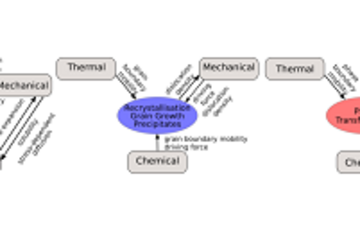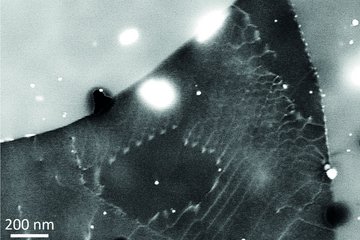All genres
21.
Talk
Thermomechnical treatment of Fe3Al Base Alloys –Texture Evolution and Inheritance. Kolloquium Dr. Lacaze, MPIE, Düsseldorf (2003)
22.
Talk
Thermomechanische Behandlung von Fe3Al-Basislegierungen-Voruntersuchungen zu Konstitution und Umformverhalten. Planungsbesprechung, MPIE, Düsseldorf (2003)
23.
Poster
Off-Stoichiometry of Laves Phases. INPT SAIC INPACT "DewSchool", Bonascre, France (2006)
24.
Poster
Thermomechanical Treatment of a Fe3Al Alloy. Junior DGM-Tag 2005, Hanau, Germany (2005)
25.
Poster
Deformation Behavior of a Fe3Al Alloy During Thermomechanical Treatment. MRS Fall Meeting, Boston, MA, USA (2004)
26.
Poster
Nucleation Mechanisms of Recrystallization in Warm Rolled Fe3Al Base Alloys. Discussion Meeting on the Development of Innovative Iron Aluminium Alloys, MPIE, Düsseldorf, Germany (2004)
27.
Poster
Brittle-to-ductile transition temperatures (BDTT) of Fe–Al alloys in dependence of the Al-content. Discussion Meeting on the Development of Innovative Iron Aluminium Alloys, MPI für Eisenforschung, Düsseldorf, Germany (2004)
28.
Teaching
Crystal Plasticity and Fresh Lobster. Lecture: Lecture, BAM, Berlin, Germany, August 23, 2006
29.
Teaching
Micromechanics of Metallic Crystals and Fresh Lobster. Lecture: Lecture at MPI für Mikrostrukturphysik, Halle, Germany, 2006
30.
Report
Texture analysis of a coarse grained Fe3Al cast alloy by neutron scattering. MPI für Eisenforschung GmbH, Düsseldorf, Germany (2004)











